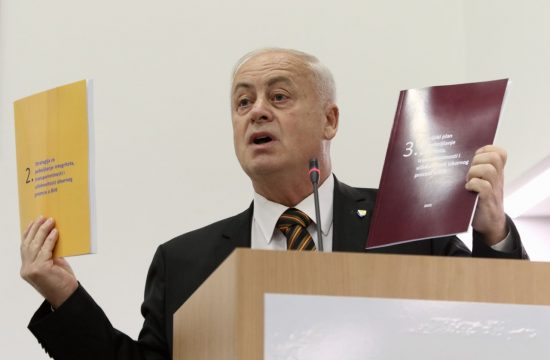Nihada Gegic does not have a single Bosnian document proving she exists, although she lives in the country for the past 22 years. That is because she was born in Kosovo, a country that does not exist if you ask Bosnia.
Ever since Kosovo declared independence in 2008, it has been struggling with international recognition because of Serbia’s objections. Among the countries that are showing solidarity with Belgrade regarding Kosovo’s sovereignty is Bosnia – mainly because its Serb leaders refuse to go against Belgrade.
Although none of this is Gegic’s fault, because of it she could never travel abroad, attend a high school, get a job, health care or get married as she neither has a valid identification document, citizenship certificate or passport. This makes her live her life mostly at home and in fear of police who might stop her on the street and ask her to identify herself.
“It happens often to me, it’s always a fear within me. I look around to see if some policeman could come and ask me to provide my ID, which I do not have,” she told N1.
“My biggest wish is for me to get all of my documents. It would be as if I was born again. I would like to go visit the coast, but I can’t,” she added.
Gegic was born in Prizren, Kosovo, in 1994, where her parents found refuge from the Bosnian 1992-1995 war. Two years later, they returned to Sarajevo. She somehow managed to finish primary school in Sarajevo’s Grbavica neighborhood, but as her time there was coming to an end, it became obvious that her difficult status will bring on a lot of problems.
Nihada only has a birth certificate, and from a country BH does not recognize.
“When I started eighth grade I realized I could not even get enrolled into high school, or really do anything else. I went everywhere, but nobody wants to help me, they only say that the birth certificate I have is invalid. Because Bosnia did not recognize Kosovo,” she said.
“Everyone else has completed schools, only I have not. Everyone realized their dreams, only not me. They don’t want to talk to me without an ID,” Nihada complained.
Her younger sister was also born on the territory of what is today Kosovo, in Vucitrn, but the parents only reported her birth to authorities after they returned to Bosnia. Her documents check out fine, and she has none of the problems Nihada has.
Nihada does not exist at all, according to the state administration. She would have no troubles getting identification documents from Kosovo authorities – if she could travel. She has family in Kosovo willing to help her, but they can’t do anything without an ID card. She only once traveled, and it was to the small town of Kladanj, with her class in primary school.
Her dream is to be a hairdresser, but that would require at least one document and remains a dream. Without ever having health insurance, Nihada visited the doctor only once throughout these her 22 years – when she was hit by a car.
Today she lives with her boyfriend and would like to get married, but this is also not an option. Nihada says that even if she would get the needed documents, she would not leave Bosnia. She would only like to visit her family in Kosovo, and then come back.
The Ministry of Civil Affairs was also informed of Nihada’s case.
“The issue of registration cannot be solved. The Republic of Serbia has so-called dislocated registry books for Kosovo, but the person in question was not recorded in those books. The only solution in such situations is to establish the fact of her birth within an extra-judicial proceeding at the relevant court, and based on that to register the person in the dislocated registry books. This would validate the document based on which the registration in BH could be completed,” the ministry explained.
Her case is far from the only one. Those who face similar problems often ask the Albanian Community of BH for help.
“There are cases where young people plan their lives, their future. Kosovo’s youth asks the community how to solve the issue of marriages. We have cases where when someone dies in Kosovo, people want to go visit the funeral, but cannot cross the border. Then they look for other ways,” said Muharrem Zejnullahu, the president of Bosnia’s Albanian Community.
While the people have to endure the complex situation and stay trapped in an administrative labyrinth, the same rules apparently do not apply for other things.
Throughout the past year, Bosnia’s export to Kosovo was ten times worth the import from the country. So, trade does exist between the two countries – as opposed to Nihada.




